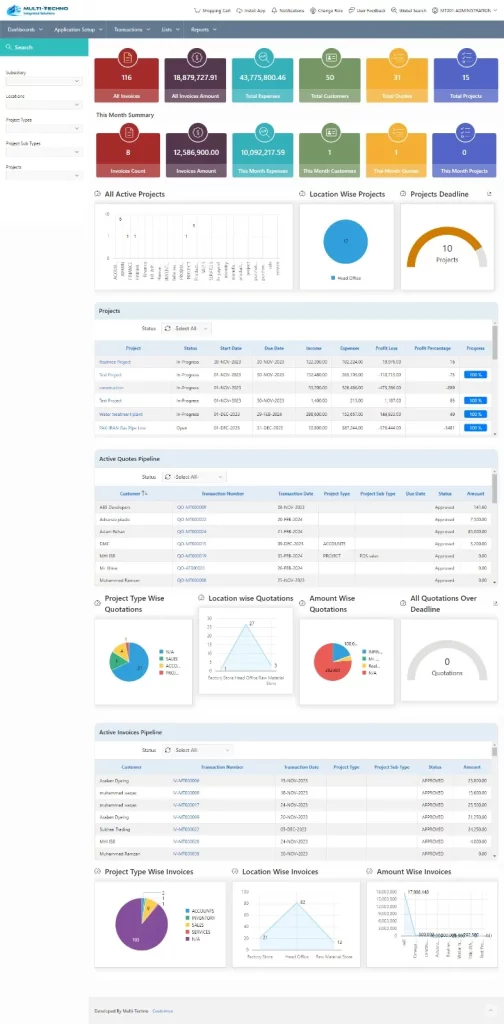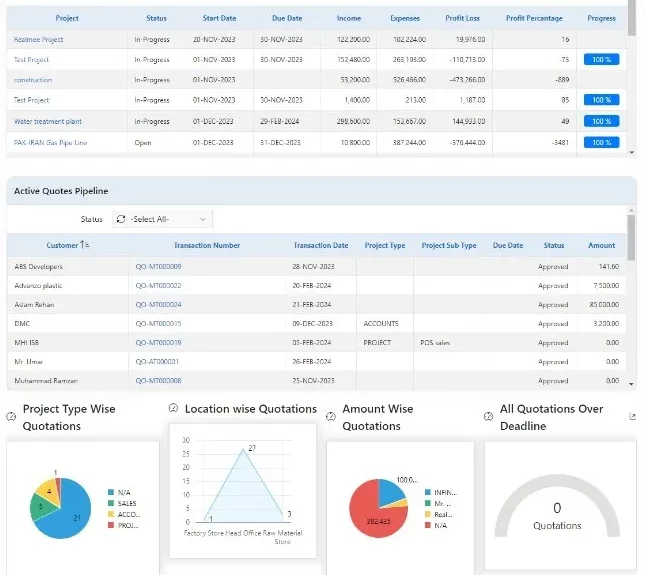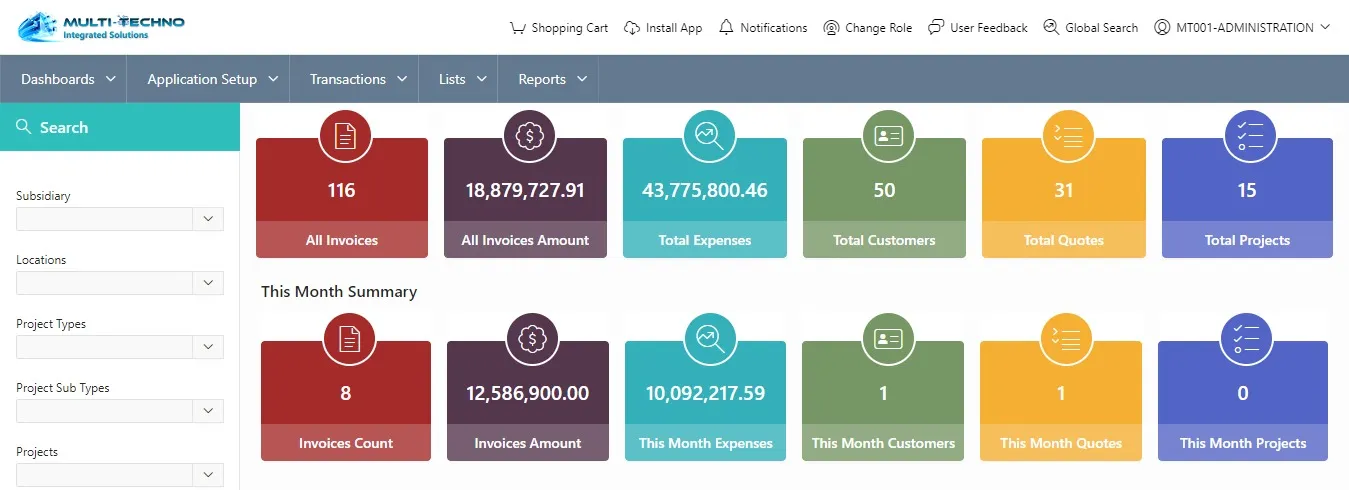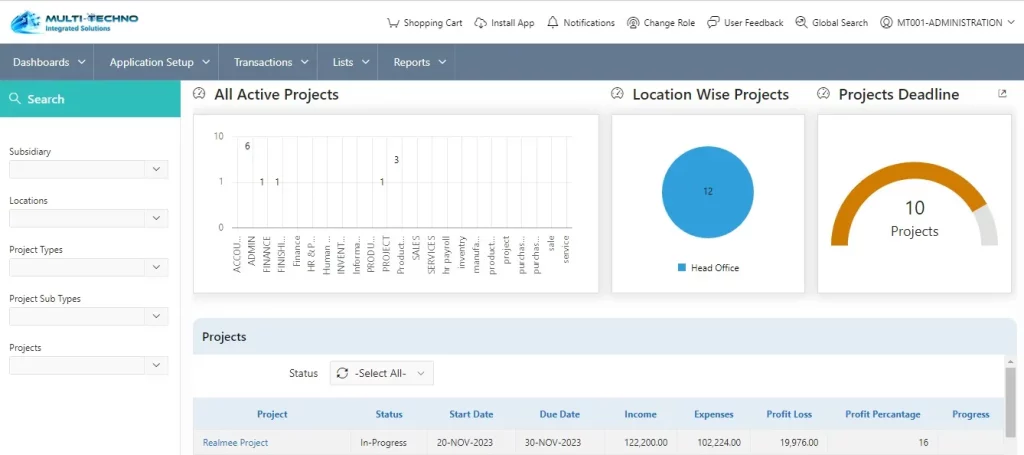Multi-Techno Integrated Solution
SOLAR INDUSTY MANAGEMENT SYSTEM
Solar Power and Energy Management Systems: Using ERP to Transform the Solar Industry
- The solar business is transforming and is fueled by advancements in solar power and energy management technologies.
- Integrating ERP (Enterprise Resource Planning) technology is crucial in adapting to this change.
- This essay explores how energy management and solar power systems reshape the solar sector.
- ERP Solutions Enhance Solar Enterprises‘ profitability, transparency, and efficiency.
- Solar electricity is gaining popularity as a clean and renewable energy source thanks to technological advancements that have reduced installation costs and improved efficiency.
- However, effectively managing the energy produced by solar installations remains a challenge, which is where energy management systems come into play.
- These systems optimize energy usage by monitoring solar panel performance through automated tools.
- Combining ERP systems with solar power and energy management can improve customer satisfaction, productivity, and operational efficiency.
- Real-time data analysis enabled by ERP helps solar enterprises maximize energy production, make informed decisions, and proactively address issues.
- Stay tuned as we delve deeper into the advantages and transformative effects of ERP-driven energy management and solar power systems on the solar sector.


What is an ERP system, and how can the solar business benefit from it?
A complete software program that unifies different business operations and procedures onto one platform is called an enterprise resource planning (ERP) system. ERP systems, as they relate to the solar business, integrate inventory management, project management, financials, and customer relationship management with solar power production.
In the solar business, implementing an ERP system has many advantages. First, it gives solar enterprises real-time visibility into every facet of the industry, enabling them to make decisions based on precise and current data. This helps proactively identify and increase production and efficiency proactively.
The Necessity of Transforming the Solar Industry
An increasingly popular clean and renewable energy source is solar electricity. The cost and efficiency of solar installations have decreased due to technological breakthroughs. Nonetheless, optimizing and managing the energy produced by these installations can still be challenging. This is where energy management systems come into play. They optimize energy use by tracking solar panel performance with automated monitoring tools.
Maximizing Solar Business Efficiency with ERP Systems
A complete software program that unifies different business operations and procedures onto one platform is called an enterprise resource planning (ERP) system. ERP systems, as they relate to the solar business, integrate inventory management, project management, financials, and customer relationship management with solar power production.
In the solar business, implementing an ERP system has many advantages. First, it gives solar enterprises real-time visibility into every facet of the industry, enabling them to make decisions based on precise and current data. This helps proactively identify and increase production and efficiency proactively.

ERP Principles of Solar Power and Energy Management Systems
Efficient Project Management
ERP systems facilitate seamless management of solar projects, from planning to execution, ensuring effective resource allocation, expense monitoring, and milestone tracking.Streamlined Inventory Control
Simplify inventory processes by ensuring critical tools and components are always available, reducing downtime and boosting productivity in solar operations.
Comprehensive Financial Management
Manage cash flow, track project expenses, and optimize profitability with features like accounting, forecasting, and budgeting tailored for solar enterprises.Enhanced Operational Efficiency
ERP solutions integrate processes, enabling solar businesses to improve workflow coordination, ensure timely project completion, and meet industry demands effectively.
Case Studies Demonstrating ERP Adoption in The Solar Business Successfully
Several solar enterprises have deployed ERP systems to improve operations and spurred expansion. Leading solar installation business Solar Tech is one such example. Solar Tech increased efficiency, accelerated project delivery, and improved customer satisfaction by centralizing its processes, improving project visibility, and reducing manual errors by implementing an ERP system.
SunPower, a multinational supplier of solar energy solutions, is another case study. SunPower upgraded its inventory control, strengthened its financial power, and optimized its supply chain by implementing an ERP system. As a result, they were able to lower expenses, enhance cash flow, and obtain a market advantage.
Implementing ERP for Solar Power and Energy Management Presents Some Challenges and Considerations
ERP systems have many advantages, but there are obstacles to their implementation in the solar sector. The integration of current systems and procedures is one of the primary challenges. Solar enterprises frequently have legacy systems; careful planning and execution are needed to integrate them with an ERP system.
Employee acceptance and training with the ERP system are other factors to consider. Change management is essential to guarantee that staff members are aware of the advantages of the ERP system and can use its functions efficiently. Comprehensive training courses and continuous assistance are needed for this.
How ERP Raises Profitability, Productivity, and Efficiency in The Solar Sector
Integrating ERP systems with energy management and solar power significantly impacts solar companies’ productivity, profitability, and efficiency power.
ERP solutions allow solar enterprises to analyze data in real-time and make proactive decisions to maximize energy production. This entails locating solar panels that aren’t working well, spotting maintenance problems, and maximizing energy use.
ERP systems also increase departmental collaboration and streamline corporate procedures. This leads to decreased human errors, more transparency, and expedited project completion. Solar enterprises can make the most of their resources and finish projects on schedule and under budget with improved project management.

ERP Integration with Additional Technologies in The Solar Sector
ERP systems can be combined with other technologies to improve efficiency and performance in the solar business further. The Internet of Things (IoT) is one such technology that makes it possible to gather and examine data in real-time from solar panels and other devices. Solar enterprises may get essential insights into the performance of their installations and take proactive measures to remedy any problems by combining IoT with ERP systems.
Artificial Intelligence (AI) is another technology that can be connected with ERP systems. AI systems can analyze vast volumes of data to forecast energy demand, improve energy production, and offer suggestions for increasing efficiency. With this integration, solar companies can automate procedures, cut expenses, and boost overall performance.
Future Developments and Trends in Energy Management and Solar Power ERP
With several emerging trends and breakthroughs, the future of ERP in the solar business is bright. One such trend is using blockchain technology to improve security and transparency in solar energy transactions. In the solar energy industry, blockchain technology can offer an unchangeable energy production and consumption record, promoting accuracy and confidence.
Another breakthrough is utilizing machine learning algorithms in ERP systems to automate and improve energy management. Machine learning can use past data and trends to forecast energy requirements, optimize energy use, and boost productivity.
In Summary, Utilizing ERP to Propel the Solar Industry Forward
The solar sector is revolutionized by integrating ERP systems with solar power and energy management. ERP solutions improve solar enterprises’ productivity, profitability, and efficiency by streamlining business operations, facilitating collaboration, and providing real-time data analysis. The future of ERP in the solar business is bright with the integration of additional technologies like AI and IoT. ERP is essential to moving the solar sector toward a more efficient and sustainable future.
About Us
ERP software and systems are designed and implemented by Multi-Techno, a registered company. By combining data from financials, sales, CRM, inventories, and operations, businesses can increase productivity, make better decisions, and increase profitability with the aid of our ERP System, a single, integrated software platform.
Quick Links
Contact Us
Office # 100, 101 Second Floor Kohinoor 1, Faisalabad, Pakistan
